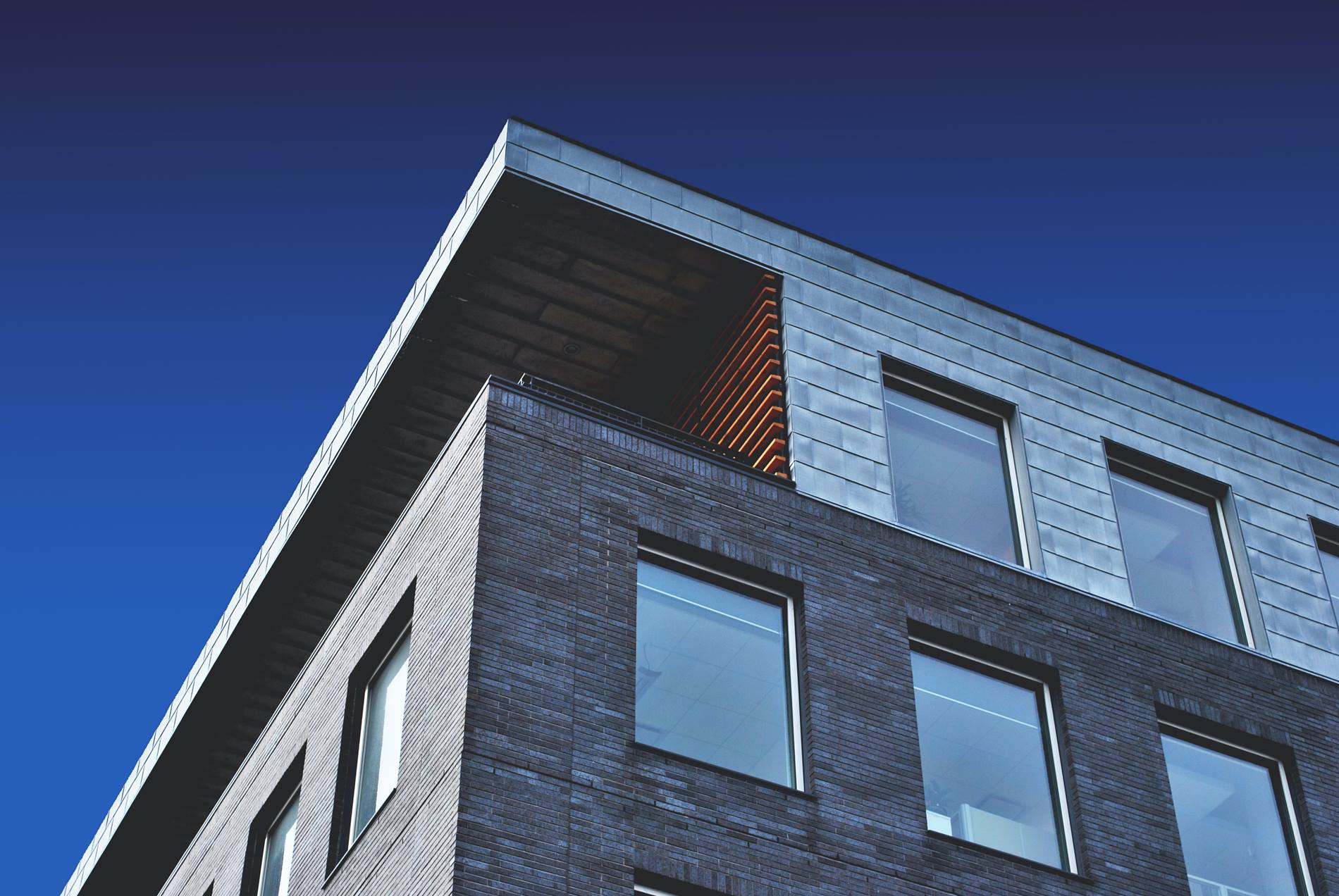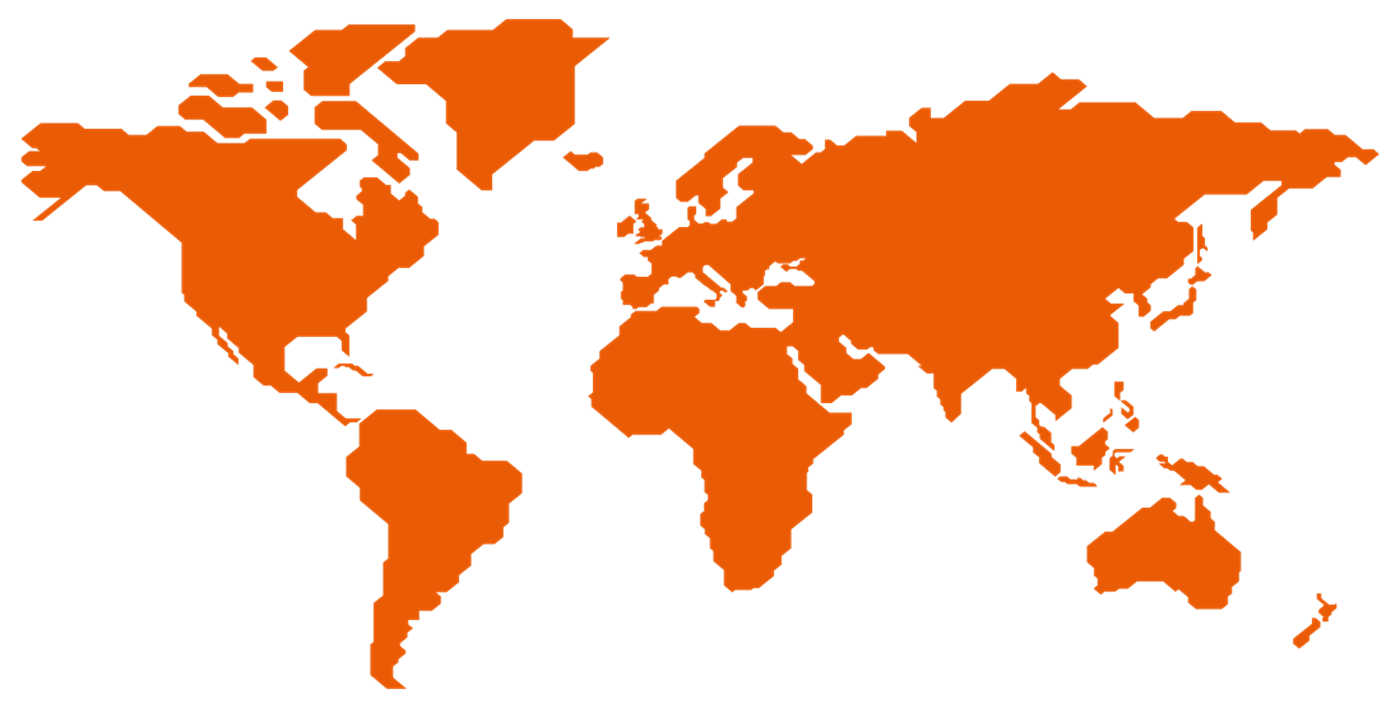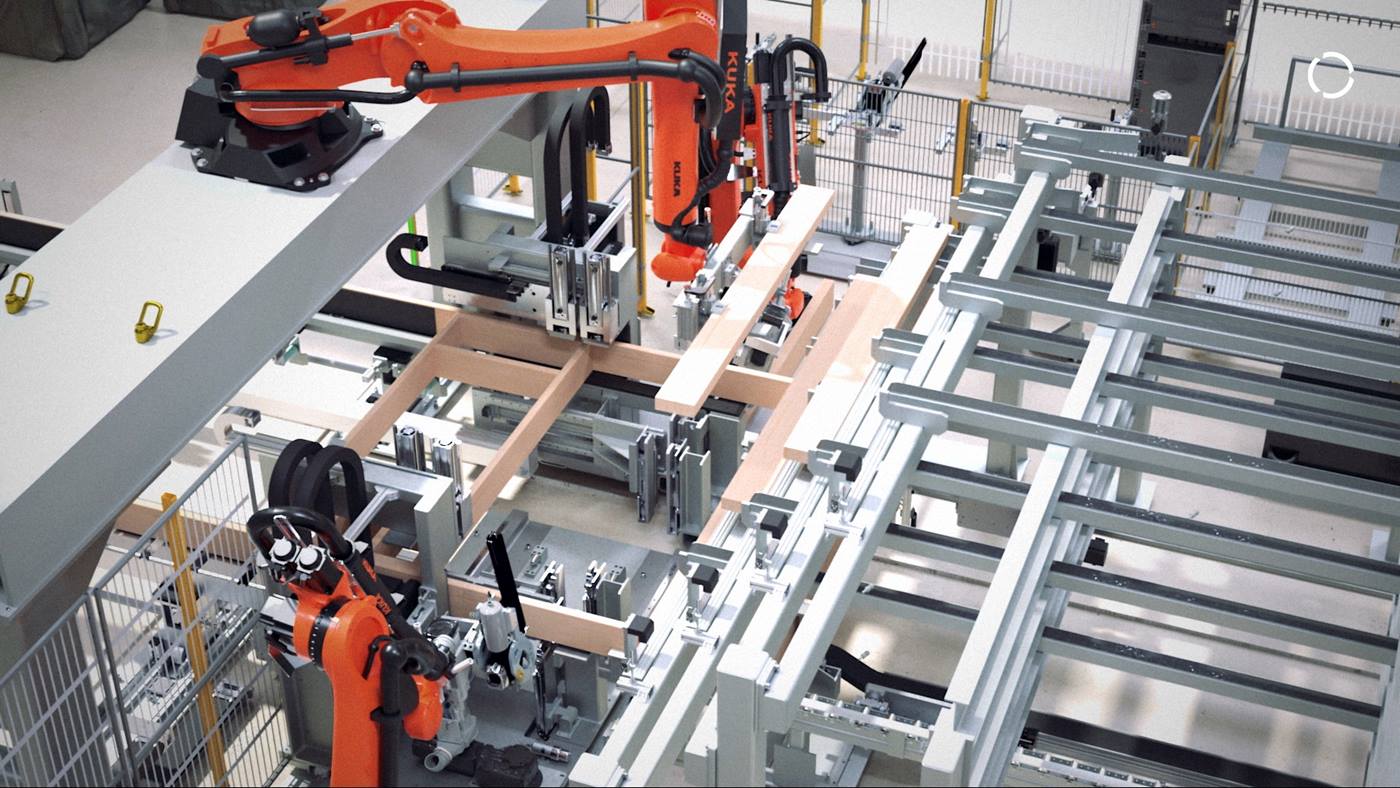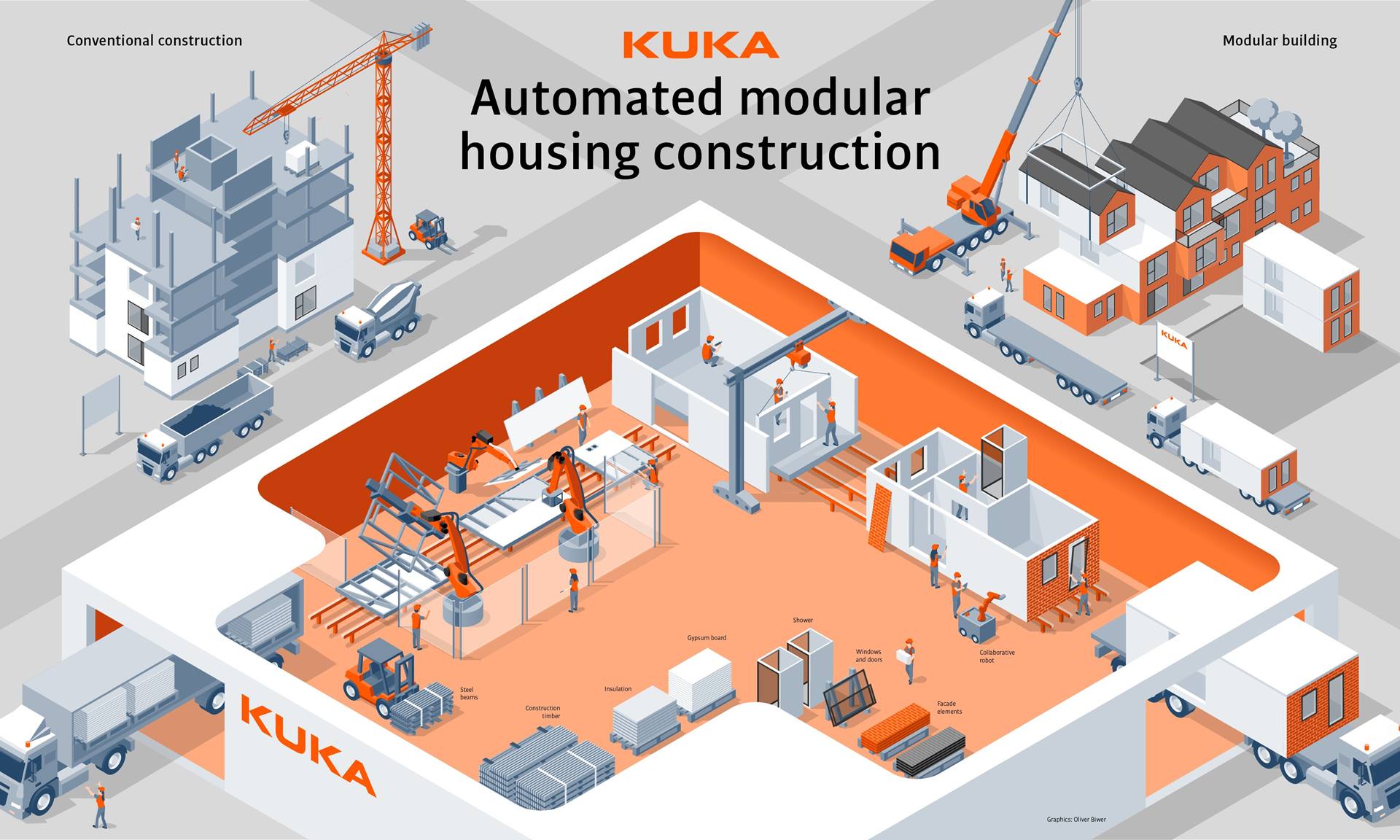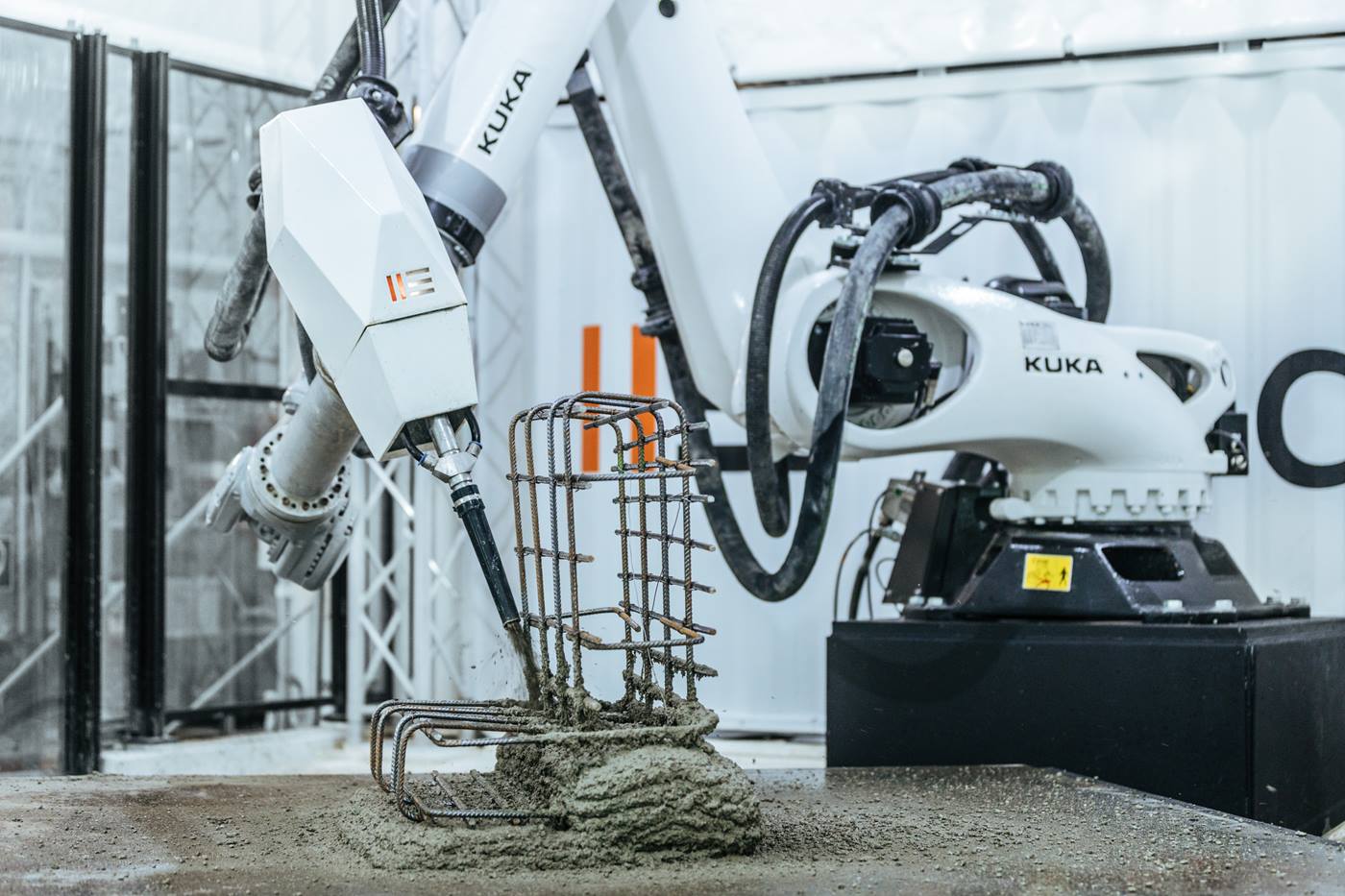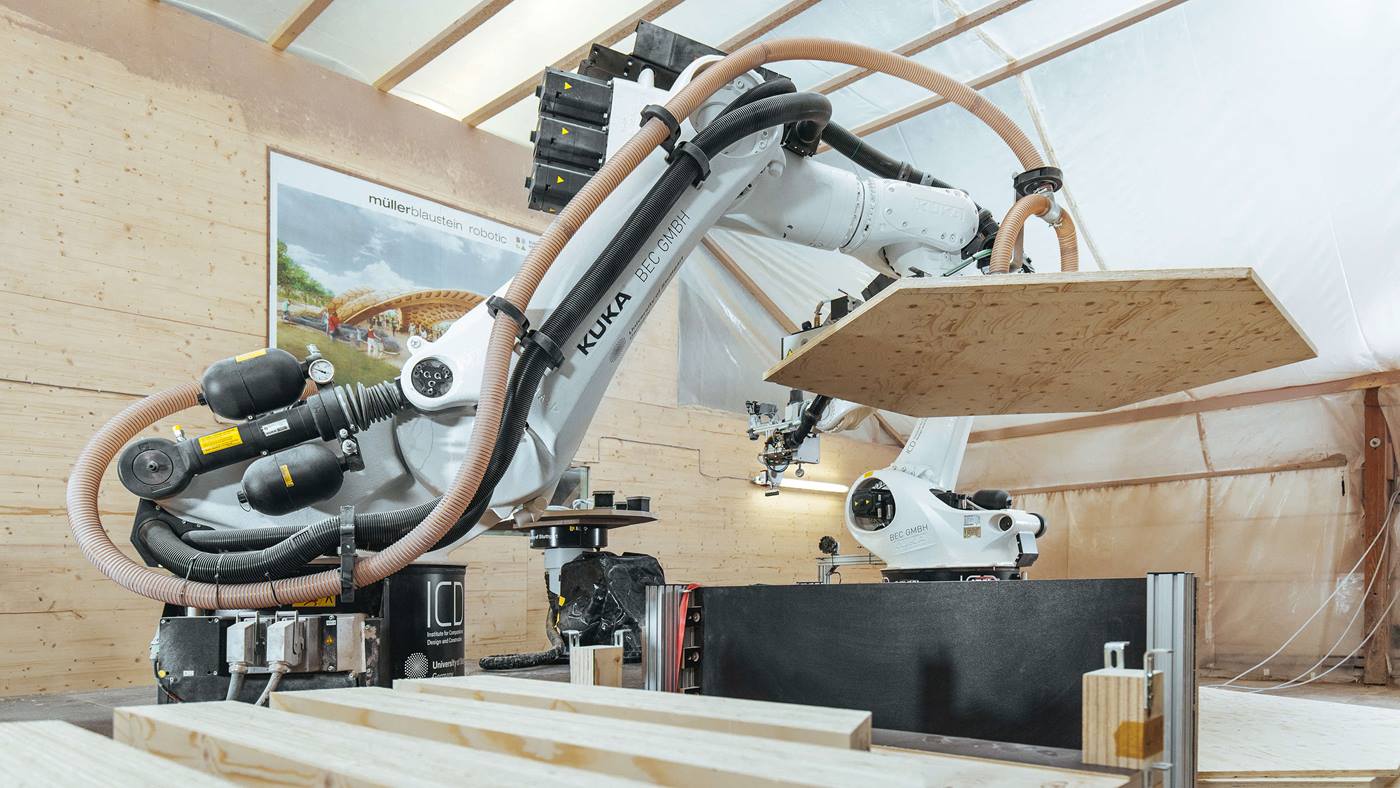Automation is our DNA
KUKA is a leading global engineering solutions provider and manufacturer of flexible and highly innovative robot-based production systems and manufacturing solutions. From individual machines, components, robots and robotic cells to complex production and assembly lines. With a company history spanning more than 100 years, KUKA has always been an agile driver of innovation in automation, driving change with experience and know-how.
KUKA has been dealing with processes and challenges in the construction industry for several years and has built up specific know-how in house construction in its own research and development projects. In order to offer an economical and effective alternative to conventional construction in automated house building, an unprecedented vertical range of manufacture was targeted, which in diverse new processes and technologies enable a paradigm shift in automated house building.

